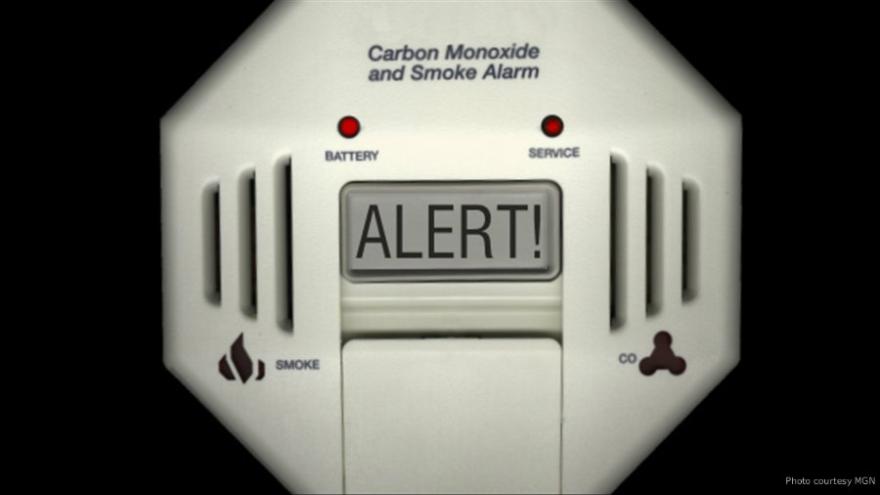As daylight saving time ends MDHHS reminds Michigan residents to check carbon monoxide detectors

LANSING, Mich. --When turning clocks back for the end of daylight-saving time Sunday November 6 as nights get longer and temperatures get colder, Michigan residents are urged to act in preventing carbon monoxide poisoning by checking to ensure carbon monoxide detectors and furnaces are working properly.
Also called CO, carbon monoxide is a gas that forms when a fossil fuel gets burned, which as a tasteless, colorless, odorless poisonous gas, is also called the "silent killer".
Items not properly vented or cared for such as gas stoves, furnaces, generators, water heaters, dryers, gas grills, space heaters, lanterns, chimneys and fireplaces at home is where most CO poisonings take place.
"Symptoms of carbon monoxide exposure include flu-like symptoms - headache, dizziness, fatigue, shortness of breath, confusion and nausea," stated by chief medical executive, Dr. Natasha Bagdasarian. "If you think you have been exposed, it is important to get into an area with fresh air immediately and seek medical attention."
Approximately 50,000 people across the country every year visit the emergency department for accidental CO poisoning, as reported by the Center for disease Control and Prevention.
The latest year in 2019 with data available from the MDHHS Michigan Environmental Public Health Tracking Program (MiTracking), had 1,090 Michigan emergency departments visits for CO poisoning.
By knowing the symptoms of exposure and practicing the safety tips listed below, CO poisoning can be prevented.
CO can cause death within minutes at high levels, so if your CO detector alarm goes off, or you think you might be experiencing CO poisoning, go outside immediately to get fresh air, then call 911.
Some safety tips to protect you and your family include making sure you have working CO detectors, replacing your detector every five years or according to manufacturer's instructions, and changing batteries every six months (fall and spring).
Other tips are using a battery-powered detector where you have fuel burning devices with no electric outlets, as well as having your wood-burning stove or furnace inspected annually, and having generators run at a safe distance (at least 20 feet) from the house.
Some final tips are to never run a car in an enclosed space, and never run a propane heater or gasoline or grill (charcoal or gas) inside your home or even in an unventilated garage.
For more information on CO poisoning, visit Michigan.gov/MiTracking.
